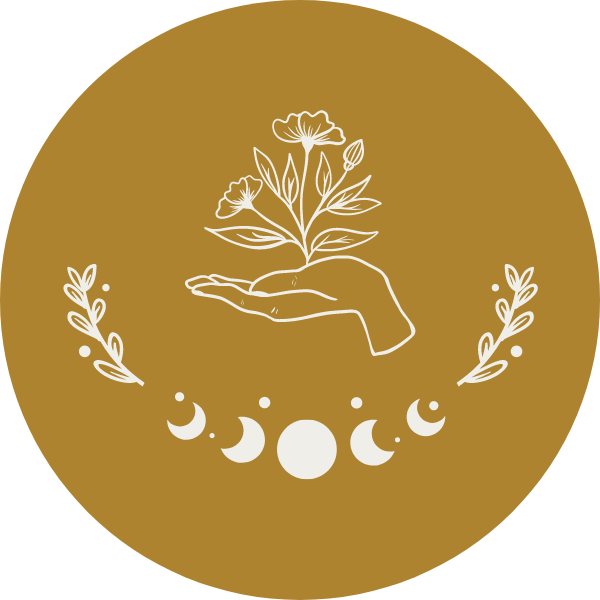Unlocking the Powers of Rosemary: A Healing Herb for Body and Spirit
In this article, we'll explore the physical healing properties of rosemary, delve into its historical applications in traditional herbalism, and touch upon its metaphysical aspects.
The Physical Healing Potential of Rosemary:
- Digestive Support: Rosemary has been cherished by herbalists for its potential to ease digestive discomfort. Sipping on a cup of rosemary tea or adding it to your culinary creations can help calm an upset stomach, soothe gas and reduce bloating.
- Anti-Inflammatory Qualities: With polyphenolic compounds that work as gentle anti-inflammatories, rosemary may be used to reduce inflammation and conditions such as arthritis and muscle soreness.
- Cognitive Enhancement: Some research suggests rosemary may boost mental clarity and enhance memory, which is why it's a favorite among students and those seeking mental acuity.
- Immune Boosting: Rich in antioxidants, rosemary can assist your body in staying resilient against common ailments. Antioxidants help protect cells from oxidative stress and damage caused by free radicals. Consider it your natural guardian during cold and flu seasons.
- Respiratory Relief: Inhaling the soothing aroma of rosemary, be it from steam or rosemary-infused tea, can help ease respiratory congestion and relieve coughs.
- Pain Relief: Rosemary may have mild analgesic (pain-relieving) properties. When applied topically or consumed, it may help relieve headaches, muscle aches, and joint pain.
- Circulation: Rosemary has been associated with improved blood circulation. It may help promote healthy blood flow and reduce the risk of cardiovascular problems.
- Skin Health: Topical use of rosemary may benefit the skin. It can help soothe irritation, reduce redness, and improve the overall appearance of the skin.
- Hair Health: Rosemary is sometimes used in hair care products because it may stimulate hair growth, improve scalp health, and reduce dandruff.
How to Incorporate Rosemary:
- Rosemary Tea: Steeping fresh or dried rosemary leaves in hot water is a delightful way to enjoy its benefits. Simply infuse a teaspoon of rosemary in a cup of hot water for 5-10 minutes.
- Culinary Creations: Sprinkle fresh rosemary leaves over roasted vegetables or use them to season your favorite dishes.
- Topical Oils: Rosemary oils have long been revered for hair growth and easing aches and pains in joints.
- Aromatherapy: Diffusing rosemary essential oil or inhaling its fragrance can provide emotional and respiratory comfort.
Historical uses of Rosemary:
- Medicinal Herb: In traditional herbal medicine, rosemary was used to address a variety of ailments. It was believed to have digestive, anti-inflammatory, and analgesic properties. It was also used to relieve headaches and stimulate circulation.
- Aromatic Herb: Rosemary's pleasant fragrance made it a popular choice for perfumes, potpourri, and as a strewing herb. It was used to scent homes and personal items.
- Symbol of Remembrance: Rosemary has been associated with memory and remembrance in various cultures. In ancient Greece and Rome, students would wear rosemary garlands during exams to improve memory. It was also used in funeral rituals as a symbol of remembrance.
- Herbal Bath: Infusions of rosemary were used in baths for their refreshing and invigorating qualities. It was believed to stimulate the body and mind.
- Protection and Purification: Rosemary has been used in rituals and spells for protection and purification. It was believed to ward off negative energy and spirits. In some cultures, it was placed in doorways and windows for protection.
- Religious and Spiritual Practices: Rosemary has played a role in religious and spiritual ceremonies. In Christianity, it is often associated with the Virgin Mary and has been used in religious rituals. It was also used in ancient Roman religious ceremonies.
- Agriculture and Livestock: Rosemary was historically used in agriculture and animal husbandry. It was believed to have insect-repelling properties and was used to protect crops and livestock.
The Metaphysical Aspects of Rosemary:
In metaphysical practices, rosemary is seen as a herb of protection, purification, and memory enhancement:
- Protection: Many believe that rosemary can create a protective barrier against negative energies or influences. Placing sprigs of rosemary around your home or carrying it with you can help ward off unwanted energies.
- Purification: Rosemary's purifying properties make it ideal for cleansing spaces, tools, and objects. Burning rosemary as an incense or smoke cleansing with it can help remove negativity.
- Memory and Clarity: Just as rosemary enhances cognitive function in the physical realm, it is believed to promote mental clarity and boost memory in metaphysical practices. Using rosemary in rituals or as an amulet can help sharpen your focus.
Incorporating rosemary into your life, both for its physical and metaphysical attributes, can be a harmonious way to experience the synergy of nature's wonders. Explore, enjoy, and savor the journey with this remarkable herb.
Disclosure:
While rosemary offers a range of potential benefits, it's crucial to remember that the information provided in this article is for educational purposes only. The author is not a medical doctor, and readers should always consult with a healthcare provider regarding their health, supplements, and any specific health concerns.







